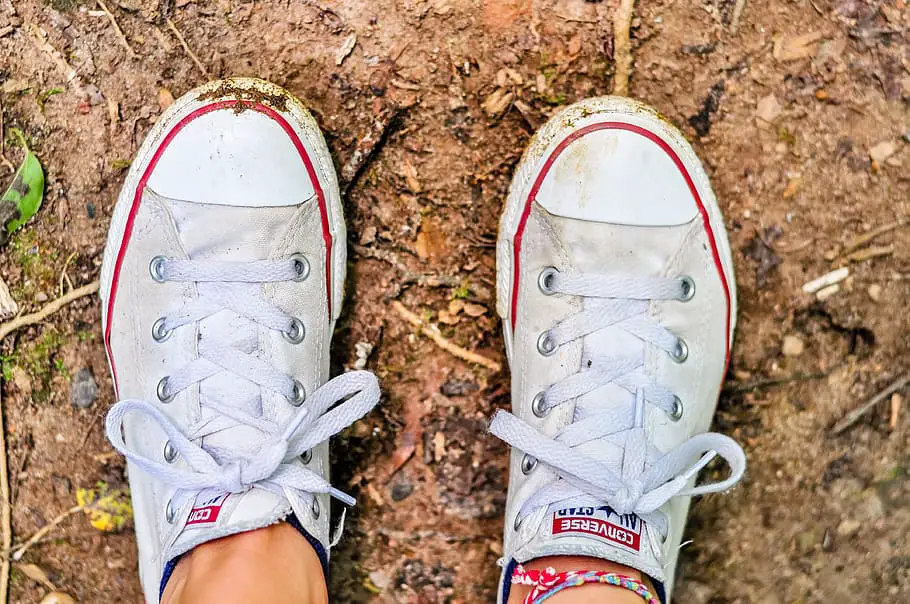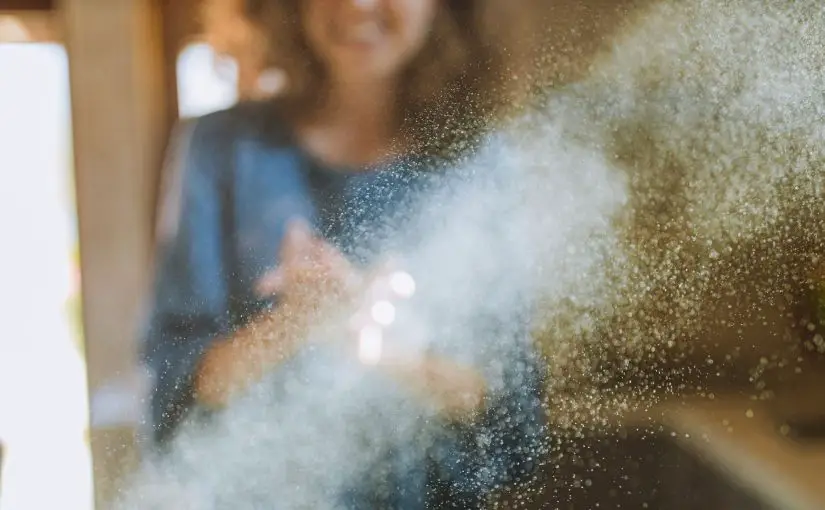Taking the time to dust the furniture and clean the house is a chore and can be disheartening when you realize how fast the dust has came back. Simply walking is enough kick it back up and undo your work.
Dust something we all battle but if you have an allergy to dust or asthma, the battle is more like a war.
Table of Contents
Why Is My Room So Dusty?
Here is a list reasons that may help you identify why there is so much dust in your room.
- Cheap HVAC filters
- Dryer Hose
- Shoes
- Leaky Vacuum
- Carpet
- Humidity or Lack of
- Dirty Duct work
- Proximity to Outdoor Dust
- Windows
- Pets
- Dead Skin
- Bugs
Cheap HVAC filters
This is easily one of the main reasons your room or house can become excessively dusty.
Cheap poor quality air filters can do little to nothing to filter out the dust from the air that is being circulated around the house via the forced air system.
Using cheap filters in your HVAC can make your air handler a whole house dust machine.
On the flip side, purchasing better filters with a Merv rating of at least a 9-12 can turn your HVAC into a whole house air cleaner and dust remover.
A warning though. A higher Merv rating means keeping the filters replaced more often 2 reduce undue strain on the unit.
If the dust level in your home does not warrant it, A filter with a 5-8 Merv rating will better for your machine and pocket book.
Dryer hose
The dryer can be a huge source of dust.
If the dryer hose has come off in the back or if it has damage that is keeping it from focusing the dust outside, then you can expect all that dust to settle indoors .
 Shoes
Shoes
One of the biggest reasons your room can be extra dusty is because it is being carried into the house by your shoes.
This is true especially if your having to walk through dirt in order to get to your house.
The easiest thing to do to prevent dust from traveling into your house with your shoes is to use door mats and keep the door mats clean.
Even better, make sure you and your family take your shoes off before you walk around the house.
Leaky Vacuum
If your vacuum doesn’t fully capture the dust and is leaking back into the air, it may actually be helping you make your room dustier.
Consider purchasing a vacuum that is fully enclosed and is equipped with a HEPA filter to capture smaller pollutants.
And don’t empty the dust canister or change the bag in the house.
Carpet
Carpets can get very dirty and be very hard to get dust out of. Especially when you’re talking about thick shag carpet.
A dirty carpet can easily be the culprit in an extra dusty home. If you have an old carpet or a thick carpet that is hard clean, just walking through the house can kick up dust onto your surfaces.
Humidity or lack of
A dry climate is a natural source for dust. when the air is dry you can expect dust in the air to be a problem because there is no moisture to help it settle.
Consider running a humidifier in your room. It will not only help keep the dust out of the air, it can help ease your dried nasal cavities.
Dirty Ductwork
If your ductwork has not been cleaned in a while, then you may have a issue with your HVAC distributing the dust inside the ductwork throughout your home.
Dust mites and mold spores are both common household allergies that could be originating in dirty ducts.
Having your ductwork cleaned and system checked may be the answer you need to control dust in your house.
Proximity to Outdoor Dust
Look around you. Are you living near a construction zone where dust and are being continually thrown around, you live near a highway or a busy Street wear exhaust is an issue?
Do you have patches of dirt in your yard or do you live next to a vacant lot?
Your proximity to outdoor dust can 100% affect the level of dust that you can expect to deal with inside of your house
Windows
If you have poorly sealed windows or open windows, you can expect dust to come through the windows.
Also windows and shades tend to become very dusty because of their proximity to the out doors.
Keeping your windows and shades clean can help does from building up and spreading further out from the windows.
Consider throwing out your old dusting t-shirt and getting a microfiber cloth instead. You can also get microfiber dusters that will help you capture the dust even better.
Pets
It’s no surprise that if you have pets that are coming in and out of the house that they are transporting all types of dust with them.
Not only dust, it’s their hair also.
Pet dander can be a real issue for allergy sufferers. Pet dander is actually bacteria that comes from your animals licking themselves and then shedding.
If you have pets in the house then consider brushing and bathing them more to help prevent dust.
Dead Skin
If your bedroom is extra dusty then you should know that it is actually your skin that is the issue.
Whether you realized it or not, you are actually shedding yourself.
And the bedroom, being one of the most used rooms because of the amount of time you spend sleeping and grooming there is taking the hit on the amount dead skin that is accumulating.
Consider washing your bedding and pillows more often to help reduce the amount of dust in your bedroom.
Bugs
Finally bugs.
Insects leave behind feces and bacteria that turns into dust.
Not only is it their feces, it’s their shell.
Dead bugs break apart and become part of the overall dust issue.
Another problem is rodents leaving there tracks and feces everywhere.
If you have a bug problem, you can very easily contribute to your dust problem.
In that case it’s time to get an exterminator.
 When you got a problem with your room or house being dusty, it usually comes down to the few primary reasons we have tried to lay for you here.
When you got a problem with your room or house being dusty, it usually comes down to the few primary reasons we have tried to lay for you here.
We hope you are able to take advantage hope some of these helpful hints.

